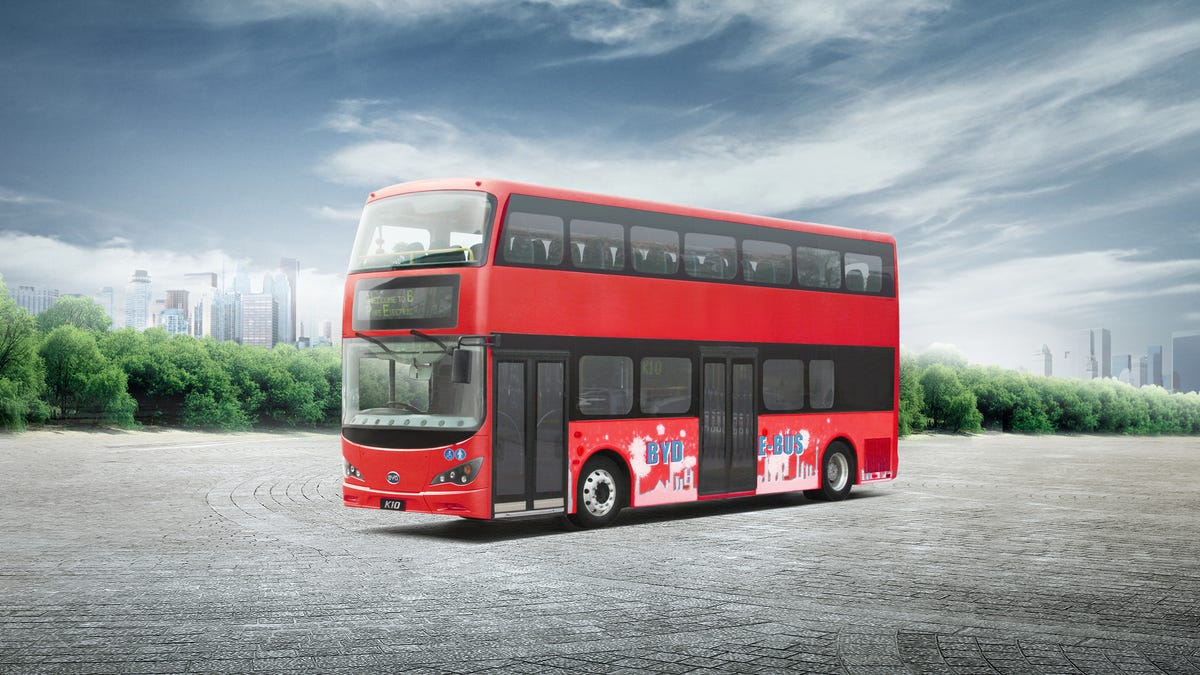London drops the veil on electric double-deckers, will hit roads in April
The buses are built by Chinese automaker BYD and cost about half a million dollars...each.

The next time you travel through London on public transportation, you might find your experience to be significantly quieter. No, it's not because you left your earplugs in after waking up. It's because some of the city's buses -- the ubiquitous double-decker ones, at least -- will be fully electric.
Transport for London (TfL), the city's transit authority, on Thursday unveiled its new double-decker bus, built by Chinese auto manufacturer BYD. Each bus costs around £350,000 (that's about a half-million US dollars), and TfL claims it's the first fully electric, double-decker bus in the world. They'll start hitting the road in April.
"For a bus, the largest part of the cost is actually the fuel, so over the long term electric vehicles can give a big cost saving effect," BYD Europe Managing Director Isbrand Ho told the Guardian last year.
It's a much more conservative design than the new Routemaster, launched with much fanfare in 2010, which harked back to the old hop-on, hop-off buses.
This isn't London's first foray into electrified public transport. One whole single-decker bus route is already fully electric, and with both old and new combined, London will be operating 74 electric buses by year's end.
It's a good step towards a zero-emissions transit fleet, but there's still plenty of work to be done. A majority of London's buses will still be diesels, and even with the most modern pollution protections, emissions will remain a chief concern for those living in and commuting through London.

